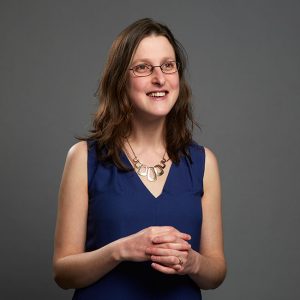Could you tell us about your contribution, Melissa?
I have been awarded associate professorship for my outstanding contribution to teaching and learning. It also recognises my significant contribution to research and innovation around increasing the accessibility of science.
The academic citizenship and leadership recognition was for my previous role as BSc/MSci Biology Course Leader, and my current role as Admissions Tutor in the Department of Biosciences and Chemistry. I’ve worked closely with schools and colleges to co-design our offer, ensuring sessions at Hallam are well-attended and impactful to post-16 students. We offer lecture experiences, campus tours and transitions to Higher Education talks.
The outstanding teaching and learning element was centred around an evidence-based approach. I led and collaborated on many LTA interventions – many of which have been published. I set up and ran the STEM ambassador programme in collaboration with STEM Learning. In the last two years over 100 undergraduate students in my department have engaged in the programme. They said it increased their transfer skills and had a positive impact on their career aspirations and employability.
I also lead my department’s public engagement and have collaborated with colleagues to organise and run events. These include externally funded citizen science projects with primary and secondary schools, the family-focused science week event Explore!, and adult-focused events in collaboration with Sheffield Museums Trust.
Molecular microbiology subject-based research was the focus of my significant contribution to research and innovation. My current research investigates the role of the human microbiome in disease, combatting antimicrobial resistance and the impact of pollution on soil microbial environments. I supervise several PhD students and my research was included in REF 2014 and REF 2021 and I expect to contribute to REF 2027.
What does it mean personally to you to be an associate professor at Hallam?
I am really, really pleased and to be honest I don’t think it’s quite sunk in yet.
Tell us a bit about your career story so far.
I am from a working-class background and the first in my family to leave school with any qualifications. I did my BSc in Biochemistry and my PhD and post-doc in molecular microbiology.
I had my first child towards the end of my three-year post-doctoral position. Sadly, I felt I couldn’t continue part-time and decided that I would likely leave academia. It was then that I successfully applied for a six-month, part-time position at Hallam as a lecturer in biosciences. One of the first people I met said that she had three children, worked three days a week, and her research had been included in REF 2013. This conversation changed my career plan and in September 2013 a permanent microbiology position became available. I applied and was successful, as was my request to work part-time. I have since had two more maternity leaves.
If you could go back in time and give yourself career advice, what would it be?
Ooh, good question – several things, I think.
Firstly, bat smarter, not harder. Many successful academics put a lot of time into their research, often evenings and weekends; if you can’t or don’t want to do that you can still be successful.
Secondly, find good, kind people to collaborate with.
Thirdly, find an internal and external mentor that have a similar lived experience and career plan.
What’s next? How do you want to further develop your contribution?
I’m planning to:
- increase the links to research and embed the new curriculum design in my schools and colleges programme including evaluation of recruitment impact
- organise a HE-wide impactful outreach workshop and publish a pedagogy workshop in collaboration with the Microbiology Society
- lead a funding bid for Blue Spaces Research Cluster to resource preliminary data/scope a study to support a large multidisciplinary funding application.